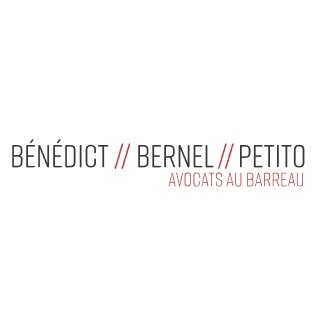Best Tax Increment Financing Lawyers in Lausanne
Share your needs with us, get contacted by law firms.
Free. Takes 2 min.
List of the best lawyers in Lausanne, Switzerland
About Tax Increment Financing Law in Lausanne, Switzerland
Tax Increment Financing (TIF) is a public financing method used for subsidizing community improvement projects, particularly urban developments. In Lausanne, Switzerland, TIF is employed to stimulate investments in underdeveloped areas by capturing the future tax benefits of the increased property values. The funding is typically used for infrastructure improvements, public amenities, or other projects that promote economic development. By attracting private investments and revitalizing areas, TIF helps municipalities achieve urban renewal goals without directly increasing taxes.
Why You May Need a Lawyer
Navigating the complexities of Tax Increment Financing can be challenging. Individuals or businesses contemplating development projects or investments in TIF districts might require legal assistance for several reasons including:
- Understanding eligibility criteria and procedural requirements for TIF
- Negotiating and drafting necessary agreements and contracts
- Compliance with local and national regulations to avoid potential legal issues
- Assistance with potential disputes involving stakeholders or government bodies
- Guidance on tax implications and financial structuring of projects
- Assessment and Approval: Projects must demonstrate potential public benefit and undergo an approval process by municipal authorities.
- Incremental Tax Capture: Only property taxes increment resulting from increased property values can be captured and used for approved projects.
- Project Scope: TIF can be used for infrastructure, housing, and community projects that contribute to economic development.
- Duration and Limits: TIF districts have a set duration and may feature caps on the amount of increment captured.
- City of Lausanne's Urban Planning and Development Department
- Federal Office for Spatial Development (ARE)
- Municipal financial advisory services
- Local economic development agencies
- Consult with a local attorney who specializes in real estate and urban development law.
- Contact municipal offices for guidance on local procedures and requirements.
- Review existing TIF district plans and studies to understand specific project opportunities and constraints.
- Engage with local stakeholders, including developers, property owners, and community groups, to gather insights and support.
Local Laws Overview
Tax Increment Financing in Lausanne is regulated by a combination of federal and local laws. Key aspects include:
Frequently Asked Questions
What is the purpose of Tax Increment Financing?
Tax Increment Financing is intended to encourage development and economic growth in underdeveloped areas by leveraging future increases in property taxes to fund improvements.
Who is eligible for Tax Increment Financing in Lausanne?
Eligibility depends on specific project proposals meeting criteria set by local authorities, emphasizing public benefit and contribution to urban revitalization.
How is a TIF district established?
A TIF district is established through a public process involving identification of eligible areas, feasibility studies, and approval by municipal governments.
What types of projects can be funded through TIF?
Projects typically include infrastructure improvements, public facilities, affordable housing, and developments that stimulate economic growth.
What are the legal challenges associated with TIF?
Legal challenges may include compliance issues, disputes over contracts, and disagreements among stakeholders over project benefits and impacts.
How does TIF affect property owners?
Property owners in TIF districts may see property value increases due to developments, and although they continue paying property taxes, these funds are redirected to finance projects.
Are there restrictions on how TIF funds can be used?
Yes, TIF funds are generally restricted to specific types of expenditure related to the approved project scope and goals.
How long does a TIF district last?
The duration of a TIF district varies but typically ranges from 15 to 30 years, depending on project goals and local regulations.
Can TIF be combined with other financing methods?
Yes, TIF is often used in combination with other public funding methods or private investments to maximize financial resources for development projects.
Who manages TIF projects?
TIF projects are typically managed by municipal authorities, sometimes in partnership with private developers or specialized agencies.
Additional Resources
For further information on Tax Increment Financing in Lausanne, you may consult:
Next Steps
If you require legal assistance in navigating Tax Increment Financing, consider taking the following steps:
Lawzana helps you find the best lawyers and law firms in Lausanne through a curated and pre-screened list of qualified legal professionals. Our platform offers rankings and detailed profiles of attorneys and law firms, allowing you to compare based on practice areas, including Tax Increment Financing, experience, and client feedback.
Each profile includes a description of the firm's areas of practice, client reviews, team members and partners, year of establishment, spoken languages, office locations, contact information, social media presence, and any published articles or resources. Most firms on our platform speak English and are experienced in both local and international legal matters.
Get a quote from top-rated law firms in Lausanne, Switzerland — quickly, securely, and without unnecessary hassle.
Disclaimer:
The information provided on this page is for general informational purposes only and does not constitute legal advice. While we strive to ensure the accuracy and relevance of the content, legal information may change over time, and interpretations of the law can vary. You should always consult with a qualified legal professional for advice specific to your situation.
We disclaim all liability for actions taken or not taken based on the content of this page. If you believe any information is incorrect or outdated, please contact us, and we will review and update it where appropriate.













